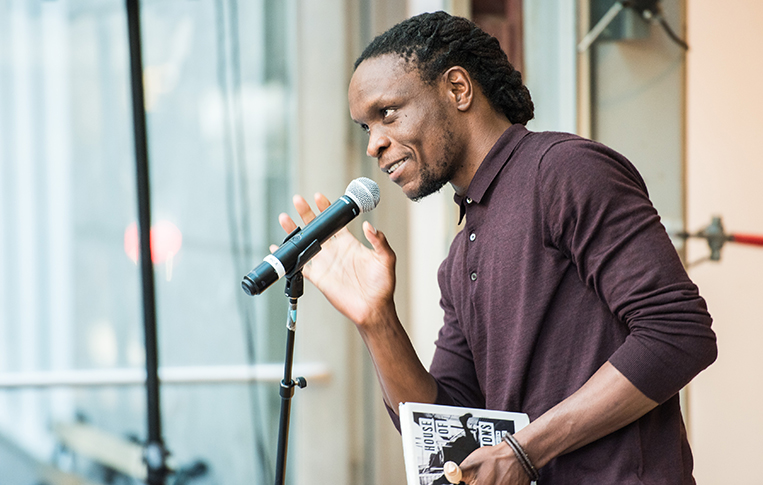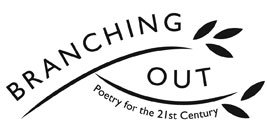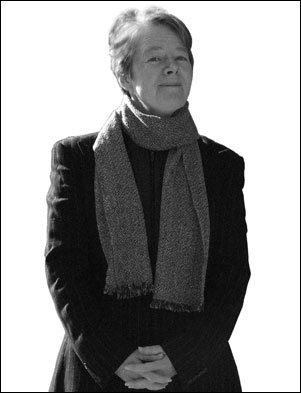Situated on the Hudson River in lower Manhattan, the nonprofit Poets House has supported engagement and conversation around poetry for thirty-five years through its public poetry library and programs. For many, Poets House has been a respite and artistic home—a physical space, amid the hustle and bustle of New York City, dedicated to poetry. Thousands have passed through its doors to browse the collection, view exhibits, write in the airy reading room, attend workshops and readings, and simply enjoy the company of fellow writers and readers of poetry.
In March, Poets House was closed to the public due to the COVID-19 pandemic. Eight months later, on November 16, the nonprofit’s board announced that it was temporarily suspending operations, effective immediately, and that all staff, except for longtime executive director Lee Briccetti and managing director Jane Preston, had been let go. In a press release the Poets House board cited financial issues caused by the pandemic as its reason for suspending operations and laying off the nine staff members. “We feel this is the right decision—and the only decision—we can make at this time,” said Robert Kissane, the chair of the Poets House board, a day after the news became public. “This isn’t a normal problem—this is brought on because of COVID and the constraints of a pandemic.”
Two days after the announcement an anonymous group of former Poets House employees—who refer to themselves as “Former Poets House Staff,” although the group does not comprise all nine former staff members—released a statement online asserting this public explanation was misleading and that they believed staff was laid off as “a direct, retaliatory response to our efforts to form a union at Poets House with UAW Local 2110 and to address discriminatory and exploitative practices at the institution.” In their statement the former workers note that they had been raising complaints about a hostile workplace culture at the organization since February, and in August had “explicitly raised concerns about racism, discrimination, sexual harassment, and mismanagement to Poets House’s Executive Committee.” They went on to note that they found the closure of the organization unexpected, and that the board let the staff go one day before the deadline for it to respond to the staff’s petition to unionize, which had been filed with the National Labor Relations Board, an independent federal agency. Six of the nine staff members had signed union cards.
A day later, on November 19, the executive committee of the Poets House board responded with a statement, which was posted as part of a Publishers Weekly article, contradicting these claims. They assert they had no objections to the prospect of a union, and would in fact welcome it in the future. “While former staff are accusing management and the Board of suspicious timing, we note that Staff members only filed a petition to unionize on November 4, when they were aware that the financial situation had put jobs in jeopardy,” they wrote, noting that staff had been told in April, June, and August that Poets House would likely need to downsize because of financial strain brought on by the pandemic.
The executive committee went on to lay out the organization’s financial situation, saying they had been operating in a deficit for months, emergency funds and other donations could not cover expenses, cash reserves were nearly depleted, and they could not “program our way out of this financial hole.” They added that even after fund-raising among their own members, they were unable to make ends meet and were forced to temporarily shut down. They said that they acted now so they could offer severance, vacation pay, and extended health care benefits to those laid off.
In their statement, the board also denied Former Poets House Staff’s description of the workplace. “While no actual examples of ‘workplace discrimination, sexual harassment, and exploitative labor practices’ have ever been provided by those who lodged them, the allegations were taken seriously when made, and the board and leadership worked hard to engage and satisfy staff concerns,” wrote the board. “An independent HR professional was brought in to investigate these claims and found that they were insubstantial.”
On November 20, Hyperallergic published a piece by staff writer Valentina Di Liscia that described the suspension at Poets House and Former Poets House Staff’s claim that the decision was in response to staff’s efforts to unionize. Multiple former Poets House workers, who spoke anonymously for fear of retaliation, came forward in the piece with allegations of specific instances of unacceptable behavior by Poets House management, board members, and donors. The former staffers also said the nonprofit lacked a formal protocol for addressing grievances, and that complaints were frequently swept under the rug.
Since the article’s publication, Former Poets House Staff has organized with others in the literary community to demand change and greater transparency at Poets House. Poet Jim Behrle, who is not affiliated with Poets House, started a GoFundMe page to raise money for the laid-off staffers and organized a protest on November 28 outside of the nonprofit’s physical space in New York City. At the protest, a group of supporters read protest poems and carried signs reading HIRE BACK THE POETS HOUSE STAFF and UNION-BUSTING ISN’T AN ART. Poets unable to attend in person, including Rosebud Ben-Oni, Franny Choi, and Don Mee Choi, supported the cause by posting protest poems online under the hashtag #WhosePoemsOurPoems.
During the first week of December, the feminist press and collective Belladonna* wrote an open letter to the Poets House board asking them to provide “a full and transparent accounting of what happened and why.” By December 10, more than 380 poets, artists, and figures in the literary community—including Rae Armantrout, Toi Derricotte, Fanny Howe, Ben Lerner, and Fred Moten—signed the letter. Multiple former Poets House employees who were not among the group let go in November also signed the letter, as did executive directors of other literary nonprofits such as Cathy Linh Che of Kundiman, Kyle Dacuyan of St. Mark’s Poetry Project, Sue Landers of Lambda Literary, and Quentin Ring of Beyond Baroque.
The letter signatories recognized the work and commitment of the board, Briccetti, and Preston to sustain Poets House, but described being “saddened and deeply unsettled that, through whatever combination of financial and intra-staff/management crises, the organization has fired its entire staff in an abrupt, unkind, and otherwise questionable manner.” Belladonna* added that the board’s press release did not “assuage the appearance of anti-union, anti-whistleblower retaliation around the timing of this extraordinary move.”
The letter went on to ask the board of directors why they did not opt to furlough staff if they intend to reopen the organization, and why they did not organize a “community-wide fund-raising campaign.” (The iconic San Francisco bookstore City Lights, for example, launched a GoFundMe in April after the pandemic forced it to close; it has since raised nearly $500,000.)
“Without pretending to be versed in the full specifics of institutional culture at Poets House,” the letter continued, “the grievances we are reading about are familiar to us: a personality-driven system of management; exploitative wage labor structures that use the poverty of poetry to take advantage of committed workers, who are often young; desired donors actively being protected from having to reckon with or curb their racist and transmisogynist habits. These are dishonorable and corrosive practices that your staff was correct to call out—for their own workplace environment and for the larger causes at hand.”
The letter concluded by urging the board to reverse their decision to fire staff and to let them unionize. “We want other organizations to learn by your example (take note) because they are no different. There is no poetry in exploiting workers and protecting power. We ask you for an honest engagement with your community. We ask you to commit resources not to lawyers and stonewalling but to positive change. We ask you to accept the need to change and respond ethically, with care for all concerned.”
On December 9, board member and poet Monica Youn responded to several of the questions raised in the Belladonna* letter, and reinforced that the organization temporarily closed because it was operating at a $200,000 deficit and running out of operating funds. She noted that, unlike many literary nonprofits, Poets House faced the challenge of financing and fund-raising for its main service—operating a free, physical library and event space—that was now closed due to the pandemic.
Youn went on to address the charge of union busting: “I am a member of the UAW. I spoke at a UAW rally during which I pulled my child out of school rather than cross the picket line in October. I also work on antiracism and gender equity issues both as part of my job and in my nonprofit involvements. If I thought for one second that that the closing of Poets House was in some way a pretext for either union busting or retaliation for complaints about DEI issues, I would resign from the board immediately.” She added: “Along with other board members, I reviewed financial and other documents as well as the plan to address DEI issues. I didn’t just take management’s word for it. My fiduciary duty is to the institution and to its continuing mission to the public. Although we were focused on the financial crisis rather than on the unionization issue, I and what seemed to be a majority of the board felt that a union rep could serve as a useful liaison, as it has for other arts nonprofits.”
As for the timing of the decision to suspend operations, Youn pointed out that the staff filed the union petition when the organization was nine months into the pandemic and “basically teetering on the edge of the cliff.” She added: “That was just when we were running out of money.” She repeated that the board made the decision when they did so they could pay severance and back vacation pay.
As to why the organization did not opt to launch a public fund-raiser, Youn said it wasn’t seriously considered by the time it became clear that their emergency fund-raising campaign—which they had launched to a smaller group of donors and members of the board itself, raising $189,938, of which the board gave $125,632—was not going to cover payroll for much longer; Youn says payroll expenses amounted to $17,000 per week. Youn also noted that the board did not furlough staff because they are not positive what form Poets House will take in the future. “We did not want our staff to not be seriously looking for jobs and to think that this existential crisis was only short-term—this was a long-term crisis for our revenue model, and Poets House was likely to change its structure and functions in order to survive in this new reality,” she said.
Youn also noted that “the pandemic created challenges for more informal workplace conversation,” and that it was exacerbated by Briccetti being on bereavement leave from late February to mid March, and then on personal leave from June through October.
When asked about the depiction of the workplace shared in Di Liscia’s November 20 piece for Hyperallergic, Youn acknowledged that staff had raised issues about the workplace, but added: “We are taking these issues seriously and we are taking the steps to address them. Yes, there are communication problems. I think a lot of organizations are going through similar periods of self-assessment at this point. We have heard about incidents that made staff uncomfortable and that we plan to address as part of our DEI efforts going forward, including DEI training for the staff and board. Our last communication with staff about specific candidates for DEI facilitators was on November 2, and we had applied for and received funding for this training, which will take place when we resume operations.”
In the past few weeks, seven former workers—five of whom were let go in November, two of whom voluntarily left Poets House at different times—spoke on the condition of anonymity to describe their experiences at the organization. They all emphasized their belief in the organization’s mission; they all also described experiencing or witnessing, while on the job, inappropriate or hostile behavior. Many of those seven describe some of that behavior as based on race, gender, sexuality, or family situation. Many believe that this behavior, when brought up, was not properly addressed.
The former employees who were working at the organization in November and also signed union cards maintain that the effort to unionize was an attempt to address this behavior, discuss labor practices at the organization, and make it a more equitable place. One former worker said, “It’s sort of weird to be in this position. They fired us, but we still love the organization and love the mission and love the library—and the whole unionizing effort was to get working conditions better for us. None of this was an attempt to bring down the organization or anything like that—it was all an attempt to make things better and more equitable for everyone.” Another said: “Our concern was equal opportunity. Fair treatment. We understand that it’s a nonprofit. But we do know that we were treated unfairly. We weren’t treated with any kind of professionalism or respect.”
All former employees interviewed for this article reiterate how much they believe in Poets House as a space for artists and poetry, and that they want to see the organization live up to its mission and values. One said: “Have the whole place—in writing—top to bottom be representative of the glorious, beautiful, hopeful, inspiring mission statement that draws us all to the space.”
Some stated that what they see as a disconnect between the organization’s stated mission and how it treated its employees, many of whom are poets and artists, is not unique to Poets House—though perhaps not equal in degree—and is perhaps part of a more widespread “veneer of liberalism or wokeness in the literary world,” as one puts it. One former Poets House worker says, “I think that the literary world really needs to reckon with the ways in which it’s not so different from the corporate world, the ways in which we use this sort of self-valorizing idea of art, this idea of poetry as this end in itself that justifies any means and justifies all sorts of bad behavior.”
One former staffer argues that arts organizations also need to implement basic organizational policies—for lodging written complaints and receiving regular performance reviews, for example—to ensure workers are treated fairly. “Each nonprofit has its own climate, and with the kind of intimacy that comes of small organizations, there’s always going to be the risk that things are personalized—that’s just inherent to these small family-style arts orgs,” notes the former worker. “You work at them because they are intimate and creative and compassionate, but there’s always the risk that without that kind of HR infrastructure in place that is more impersonal, things can go awry.”
As for the future of Poets House: In their public statements, the board said they hope, public health guidelines permitting, to reopen the library in late 2021. In the meantime, they are discussing what Poets House might look like in the future and working to find a successor for Briccetti, who will retire next year. Preston, the organization’s managing director, also plans to retire but will stay on to ensure a smooth transition, according to Youn. The board reiterated their commitment to protecting and sustaining the library, its collections, and the community it serves. Youn also emphasized that the board is committed to creating a more equitable structure and furthering its plans to implement DEI training for all board members and staff when the organization reopens. She said the organization “hopes to release a statement outlining more concrete steps and reaffirming our commitment to a more inclusive workplace.”
All of the former staff members who were laid off in November, meanwhile, are figuring out what to do next. “It’s going to be a difficult winter,” says one. Another says, “The safety net of having money to put food on the table and pay rent in the time of the pandemic has been unfairly removed from us—we’re in free fall.”
Another former employee says, “I think the board owes it to their funders and the public to articulate a clear timeline and a less opaque plan. Organizations like Poets House are founded in public trust and are tax-exempt because they are considered ‘charitable,’ and we have faith in them as being committed to poetic values—foremost among them, the truth.”
Jim Behrle, meanwhile, has organized another protest in support of Former Poets House Staff—a march near Poets House scheduled for this Saturday, December 12, at noon EST.
All the workers laid off in November are also grieving the loss of their jobs and the work they were doing to support writers and build conversation around poetry. Projects are halted; online events scheduled through the end of the year were canceled or postponed. “There’s a lot of materials, new poetry books in boxes, sitting there waiting to be checked in and organized in some way,” says one. “All that’s stopped now.”






